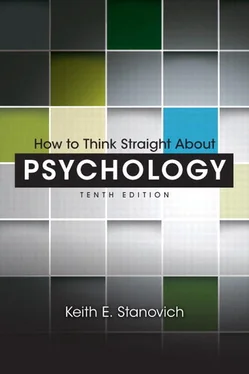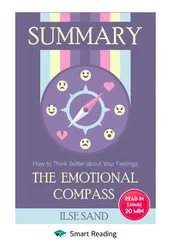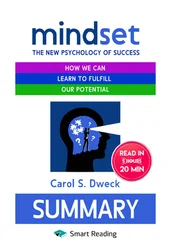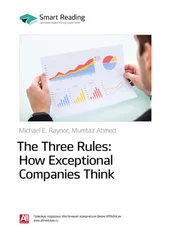That folk wisdom is “after the fact” wisdom, and that it actually is useless in a truly predictive sense, is why sociologist Duncan Watts titled one of his books: Everything Is Obvious—Once You Know the Answer (2011). Watts discusses a classic paper by Lazarsfeld (1949) in which, over 60 years ago, he was dealing with the common criticism that “social science doesn’t tell us anything that we don’t already know.” Lazarsfeld listed a series of findings from a massive survey of 600,000 soldiers who had served during World War II; for example, that men from rural backgrounds were in better spirits during their time of service than soldiers from city backgrounds. People tend to find all of the survey results to be pretty obvious. In this example, for instance, people tend to think it obvious that rural men would have been used to harsher physical conditions and thus would have adapted better to the conditions of military life. It is likewise with all of the other findings—people find them pretty obvious. Lazarsfeld then reveals his punchline: All of the findings were the opposite of what was originally stated. For example, it was actually the case that men from city backgrounds were in better spirits during their time of service than soldiers from rural backgrounds. The last part of the learning exercise is for people to realize how easily they would have explained just the opposite finding. In the case of the actual outcome, people tend to explain it (when told of it first) by saying that they expected it because city men are used to working in crowded conditions and under hierarchical authority. They never realize how easily they would have concocted an explanation for exactly the opposite finding.
So sometimes our implicit psychological theories can’t be refuted. We will see in the next chapter why this inability to be refuted makes such theories not very useful. However, a further problem occurs even in cases in which our folk beliefs do have some specificity, that is, even when they are empirically testable. The problem is that psychological research has shown that, when many common cultural beliefs about behavior are subjected to empirical test, they turn out to be false.
It is not difficult to generate instances of folk beliefs (or “common sense”) that are wrong. Take, for example, the idea that children who excel academically or who read a lot are not socially or physically adept. This idea still circulates in our society even though it is utterly false. There is voluminous evidence that, contrary to “commonsense” folk belief, readers and academically inclined individuals are more physically robust and are more socially involved than are people who do not read (Zill & Winglee, 1990). For example, children high in scholastic achievement are more likely to be accepted by their peers than children low in achievement. People who are avid readers are more likely to play sports, jog, camp, hike, and do car repair than are people who do not read very much.
Many of our folk beliefs about behavior arise and take on a life of their own. For example, throughout the 1990s the folk belief developed in our society and in schools that low self-esteem was a cause of aggression. But empirical investigations indicated that there was no connection between aggression and low self-esteem (Baumeister, Campbell, Krueger, & Vohs, 2003, 2005; Krueger, Vohs, & Baumeister, 2008). If anything, the opposite appeared to be the case—aggression is more often associated with high selfesteem. Likewise, an extremely popular hypothesis for the past couple of decades has been that school achievement problems are the result of low self-esteem in students. In fact, it turns out that the relationship between self-esteem and school achievement is more likely to be in the opposite direction from that assumed by educators and parents. It is superior accomplishment in school (and in other aspects of life) that leads to high self-esteem and not the reverse.
Consider another commonplace expression of folk wisdom: “children bring happiness to their parents.” This statement might have some degree of truth if used to refer to how we view the effects of our children from the vantage point of retirement. People do indeed look back on their children as having brought them great happiness. The problem is that people tend to confuse the perspective of looking back on an event with the actual experience of the event. Having children turns out to be a case where the two perspectives are very different. Looking back on having children from old age does indeed make people happy. However, in terms of ongoing, moment-to-moment happiness (as opposed to retrospectively looking back), children actually make people less happy. There is now a fairly sizable literature using so-called experience-sampling methods to look at how happy people are at various points in time (Brooks, 2008; Gilbert, 2006; Gorchoff, John, & Helson, 2008; Lyubomirsky & Boehm, 2010; Wargo, 2007), and this research shows a number of trends, for example, that getting married increases happiness. This literature also shows that parental happiness drops with the arrival of the first child. It rebounds a little until the first child reaches adolescence, and then it drops even further. Marital happiness returns to childless levels only when the last child leaves home.
In short, the folk wisdom “children bring happiness to their parents,” when subjected to scientific examination, turns out to have a number of complications. It is true only from the retrospective standpoint—“children bring happiness” when they have finally left home and we can appreciate the accomplishment of raising them! This is not, though, what the phrase is often used to imply. It is often used to imply that having children will bring you happiness right now —in your short-term future. This is where this “folk wisdom” is most egregiously wrong.
Another example of folk wisdom gone wrong is the common admonition to students that if they become unsure about an answer that they have given on a multiple-choice test they should never switch from their original choice. Not only do most students think that they should not switch when uncertain of an answer, but even Barron’s Guide to GRE Preparation advises “Exercise great caution if you decide to change an answer. Experience indicates that many students who change answers change to the wrong answer” (Kruger, Wirtz, & Miller, 2005, p. 725). This advice is completely wrong. The advice is wrong because the folk myth that changing answers decreases a person’s score is dead wrong. Actual research has shown that when doubts about a multiple-choice answer arise, students are better off switching from their first answer (Kruger et al., 2005; Lilienfeld, Lynn, Ruscio, & Beyerstein, 2010).
A case where we can really see folk wisdom run amok is in the folk myth that we use only 10 percent of our brainpower. Despite having absolutely no basis in cognitive neuroscience (Boyd, 2008; Lilienfeld et al., 2010), this one has been around for decades and has taken on the status of what has been termed a “psycho-fact”—a statement about psychology that is not true but which has been repeated so much that the average person thinks that it is a fact. It is likewise with the belief that some people are “left-brained” and other people are “right-brained”; or that certain aspects of personality are controlled by the left side of the brain and other aspects of personality by the right side. Although modern neuroscience research does show subtle specializations throughout the brain, the strongly stated popularizations of this idea in terms of “left” or “right” are invariably nonsense—particularly in the context of the finding that our brains work in an integrated fashion (Lilienfeld et al., 2010; Radford, 2011).
Читать дальше












